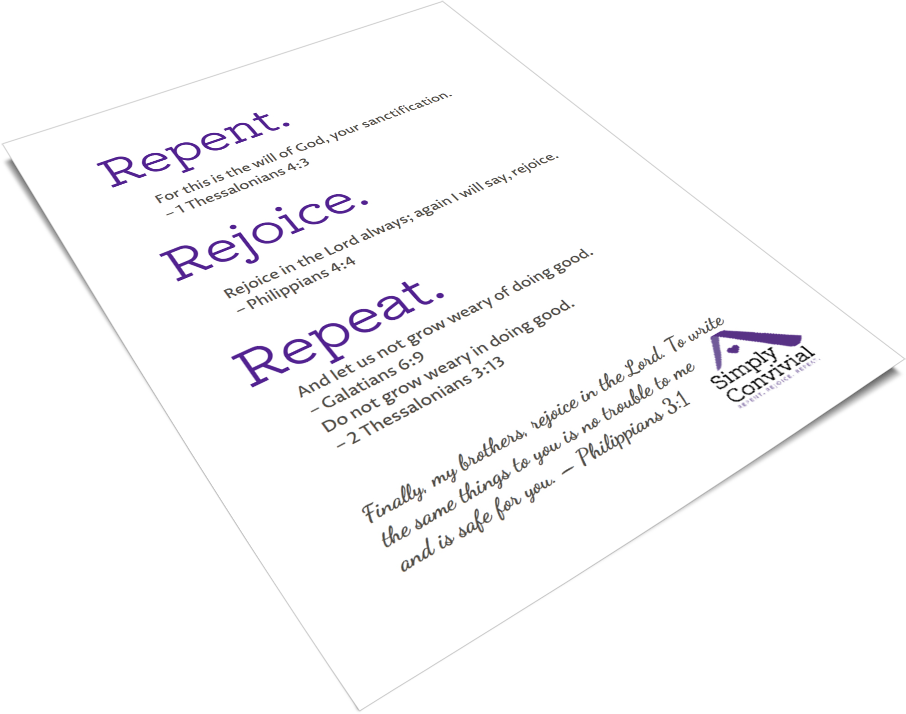“Mommy! He hit me!”
“But he was being annoying!”
How easy is it to start barking out the orders:
“You, don’t tattle.”
“You, don’t lie.”
“You, don’t hit.”
“You, mind your own business.”
…and then collapse in a heap on the floor, exhausted and ready to throw up hands in dismay. We can sense that our imparted wisdom is falling on deaf ears and hard hearts.
Time to work in everyone’s character!
Maybe if we buy a character curriculum, the bickering will stop.
Maybe if we create a chart and rewards, the work will get done without complaining.
Maybe if we give a 15 minute sermonette for every offense, the kids will learn holiness.
Maybe if we make positive affirmations about our character every morning, it will become true.
Fat chance.

Guess what? People have been trying to build their own character and improve others’ character from time immemorial. Some have even had success. Many have had insight. Ink has been spilt on this subject.
Character building used to be called education, but now it is talked about as some subset, an add-on we use to supplement.
However, character is not grown by a curriculum. It is not an optional and possibly nice (or awkward or painful) supplement.
Character is the point.
Character building happens in the midst of life, a life of vitality and growing – which is education. Character is the outcome of completing the math program, of knowing how to write, of learning a language. Even today we will say things like, “The college degree might not prove you know much content, but it does prove you learned to show up on time and complete the work.” That is character, and it is true that education should build character.
Character is forged in adversity. We can’t have patience without being provoked. We can’t have courage without having fear. We can’t have steadfast faithfulness without the temptation to shirk.
It is true for us as mothers, and it is true for our children.
Math is Character Building
So character is built by the math lesson. When the math lesson shows us our ignorance or laziness, we don’t solve that problem by changing curriculums, but by persevering through the lesson and growing thereby. Will we settle for 70% understanding or will we stick with it, sometimes over the course of days or weeks, until we reach 100% and mastery? Will we let a tricky problem undermine our confidence, using it as an excuse to give up on ourselves? Our children do this, and we do it too though we are provoked by different challenges than the math lesson.
The math equation sits coolly and calmly on the page, taunting us with our weakness.
Perhaps the weakness encountered is a dishonest streak, one that seeks out a way to simply steal the correct answer from the teacher manual or calculator rather than do the work. But sticking it out and doing the work without giving in builds honesty.
Perhaps the weakness we become aware of is sloth. We don’t want to do the work. We are tempted to do it sloppily, halfheartedly, or not at all. Choosing perseverance looks like sticking it out and doing the lesson as best we can.
Perhaps fear is our weak streak. The equation sit there placidly but we are an internal mess, fearful of flubbing, fearful math will never end, fearful we don’t understand, fearful we will look foolish. The fear paralyzes us and makes our fears true, because correct answers don’t come out of a panicked mind. But when we know to take a deep breath, to get up and take a walk, to get a glass of water or a cup of tea, to pray for strength and grace – then we can overcome, taking it one problem at a time, asking for help as we need it.
As our children struggle through math, we mothers are the ones who must not fear. The struggle is where the strength of character is borne, and our job is to coach them through the difficulty, not remove the struggle.
Repentance looks like coming to the work done dishonestly or sloppily or ignorantly – whatever form the incorrect answer took – and making it right.
The more we become accustomed to returning to our work and correcting it, the more we become strong characters – characters who care more about Truth than how we look or feel.
Character doesn’t come when things are easy and frictionless, but when temptation comes and is overcome, whether the overcoming comes at the moment of temptation or comes as repentance and correction afterwards.

Homeschooling is Character Building
Are we willing to give ourselves to character building, to actually pay attention and hold on enough to build character not only in our children but in ourselves?
It is much easier to chant definitions, sing catchy ditties, and hand out stickers. But what is asked of us is that we are faithful, that we increase in character, in virtue. Then we can take our children along for the ride – not that their character is built by ours, but that as our own character grows, we will be aware of the real issues at hand. We will not be content with surface solutions. We will hold on and help them through to the other side of struggle, which is virtue. We will know it is no quick fix, but a life’s work.
It is not that if we want them to be good at math, we must be good at math.
It is that if we want them to do their work cheerfully and without complaining, consistently and correctly, we must apply that standard to ourselves first.
And when we fall short, we must repent. And when they fall short, we must walk with them and help them up, knowing that the perseverance we are coaching will pay dividends far greater than the math lesson alone.
Keep these truths in mind with this free printable.


Lovely post. I needed that today. :)
We have to talk about keeping our cool? I think I’m out.
Thank you!
One of the best characterizations of the purpose of math, and education, I’ve read in a long time. I have definitely seen my share of ‘mad math doodles’. ;) Yet, we press on thru the math tears in the name of character-building, and hope to see the fruits on the other side. Thanks, Mystie!
I missed the talk, did you guys do a replay… maybe?
Yes! If you sign up, you’ll receive the replay. :)
Thank you!
Very nice post. Loved reading this!
Great post, thank you. I missed the chat but would love to see more on this! Also, more on how to keep your cool! Haha.
This is timely. My homeschooling theme for the year is “it’s all about character,” but it’s maddeningly easy to lose focus. When I’m reading out loud or helping with a math problem I do not want to stop and deal with the character issue “interruption”, but it’s not an interruption – it’s the main thing and I trust taking the proper time to deal with it will pay off! Thanks for the reminder.
Loved this: ‘Character building used to be called education, but now it is talked about as some subset, an add-on we use to supplement.’ So true.
This is excellent! I am guilty of math curriculum hopping. We have definitely been working on character issues as they pop up but I never thought to stick with a math program as an intentional character development plan. I think it is very true that the way they do their work is more important than the actual content of the work. Thank you for this article and bringing it to my attention.
I just read this with my 13 year old. Needed to be said and praying it sticks.
Angry (or, more often in our case, sad, crying) math doodles are a thing?!! It’s not just us!?! *deep sigh of relief*
Thank you, what a beautiful and relevant post!
Definitely not just you!